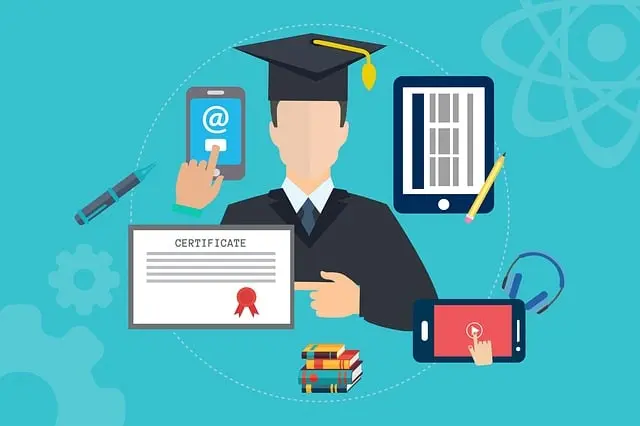Introduction
The landscape of education is rapidly evolving, with online college degrees becoming increasingly popular and accessible. This shift towards digital learning platforms is transforming how people approach higher education, making it more flexible, affordable, and inclusive. As technology continues to advance, the future of education is undoubtedly online. This article explores the benefits of online college degrees and how they can help you unlock your potential.
The Rise of Online Education
Online education has grown exponentially over the past decade. Initially seen as a secondary option to traditional classroom learning, it has now become a mainstream choice for many students. The COVID-19 pandemic further accelerated this trend, highlighting the necessity and effectiveness of remote learning. Universities and colleges worldwide have expanded their online offerings, providing a diverse range of programs that cater to various interests and career goals.
Benefits of Online College Degrees
Online college degrees offer numerous advantages that traditional on-campus programs may not provide. Here are some key benefits:
1. Flexibility
One of the most significant advantages of online education is its flexibility. Students can access coursework and lectures at their convenience, making it easier to balance studies with work, family, and other commitments. This flexibility allows learners to progress at their own pace, accommodating different learning styles and schedules.
2. Accessibility
Online education breaks down geographical barriers, providing access to quality education for individuals regardless of their location. This is particularly beneficial for those living in remote areas or countries with limited educational resources. With an internet connection, students can enroll in programs offered by institutions around the world.
3. Cost-Effectiveness
Online college degrees are often more affordable than traditional on-campus programs. Students can save on costs associated with commuting, housing, and campus fees. Additionally, many online programs offer financial aid and scholarships, making higher education more accessible to a broader audience.
4. Diverse Program Offerings
The variety of programs available online is vast, covering fields from humanities and social sciences to STEM and business. This diversity allows students to find programs that align with their interests and career aspirations. Furthermore, online platforms often provide specialized courses and certifications that can enhance professional skills and employability.
5. Skill Development
Online learning fosters the development of essential skills such as self-discipline, time management, and digital literacy. These skills are highly valued in today’s job market and can significantly enhance a graduate's employability. Additionally, many online programs incorporate interactive tools and technologies that enhance the learning experience and prepare students for modern work environments.
Challenges and Solutions in Online Education
While online education offers numerous benefits, it also presents certain challenges. Addressing these challenges is crucial to ensure a successful and enriching learning experience.
1. Lack of Social Interaction
One of the primary concerns with online education is the potential lack of social interaction. Traditional classroom settings facilitate face-to-face interactions and networking opportunities. To mitigate this, many online programs incorporate interactive elements such as discussion forums, group projects, and virtual study groups. These features foster a sense of community and collaboration among students.
2. Technological Barriers
Access to reliable internet and technology can be a barrier for some students. To address this issue, institutions are increasingly providing resources and support to ensure all students can participate in online learning. This includes offering technical assistance, providing access to necessary software, and creating low-bandwidth versions of course materials.
3. Self-Motivation and Discipline
Online learning requires a high degree of self-motivation and discipline. Without the structure of a physical classroom, some students may struggle to stay on track. To help students succeed, many online programs offer personalized support services such as academic advising, mentoring, and regular progress check-ins. These resources can help students stay motivated and achieve their educational goals.
The Future of Online College Degrees
The future of education is undoubtedly digital, with online college degrees playing a central role in this transformation. Several trends are shaping the future of online learning, making it even more effective and accessible.
1. Technological Advancements
Advancements in technology are continually enhancing the online learning experience. Virtual reality (VR) and augmented reality (AR) are being integrated into educational programs, providing immersive and interactive learning environments. Artificial intelligence (AI) is also being used to create personalized learning experiences, adapting course content to meet individual student needs.
2. Lifelong Learning
The concept of lifelong learning is becoming increasingly important in today’s fast-paced and ever-changing job market. Online education provides a convenient platform for continuous skill development and career advancement. Professionals can easily access courses and certifications to stay updated with industry trends and advancements.
3. Global Collaboration
Online education promotes global collaboration and cultural exchange. Students from different countries and backgrounds can connect and collaborate on projects, broadening their perspectives and enhancing their learning experience. This global interaction prepares students for a diverse and interconnected world.
4. Recognition and Accreditation
As online education becomes more prevalent, the recognition and accreditation of online degrees are also increasing. Employers are becoming more accepting of online qualifications, especially from reputable institutions. This shift is enhancing the credibility and value of online college degrees.
Conclusion
Online college degrees are transforming the future of education, offering flexible, accessible, and cost-effective learning opportunities. By leveraging technology, online education is breaking down traditional barriers and providing diverse program offerings that cater to various interests and career goals. While challenges exist, ongoing advancements and support services are continually improving the online learning experience. Embracing online education can unlock your potential, providing the skills and knowledge needed to thrive in a dynamic and competitive world. The future of education is here, and it is online.

